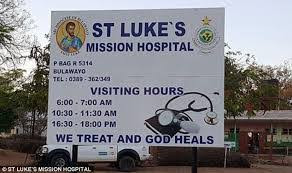
THE RESORT town of Victoria Falls, still revelling from hosting the United Nations World Tourism Organisation (UNWTO) General Assembly, is set to be declared a special economic zone by President Robert Mugabe’s new administration, ostensibly to attract investment into the tourist paradise of Matabeleland North.
Gamma Mudarikiri
During the week-long UNWTO tourism jamboree, Victoria Falls, which co-hosted the event with neighbouring Livingstone, Zambia, attracted a lot of international attention with dignitaries from over 150 countries gracing the occasion.
Some delegates indicated investors from their countries would be interested in pouring their money into the resort town, which boasts reliable water courtesy of the ever-flowing Zambezi River and a reliable road network which is a gate-away to markets in the Greater Lakes region.
In an interview with Southern Eye yesterday the Economic Planning and Investment Promotion ministry permanent secretary Desire Sibanda said discussions to declare the resort town an economic zone have been going on for some time and were temporarily suspended after dissolution of Cabinet before the July 31 elections.
President Mugabe controversially romped to victory.
“We will be taking up the issue with the new minister and we are optimistic the new government will support the proposal,” Sibanda said.
He said declaring Victoria Falls an economic zone would enable potential investors to be given preferential treatment including exemption from tax on investment and free duty on imports during the implementation of the project, among other fringe benefits.
- Chamisa under fire over US$120K donation
- Mavhunga puts DeMbare into Chibuku quarterfinals
- Pension funds bet on Cabora Bassa oilfields
- Councils defy govt fire tender directive
Keep Reading
Sibanda said following the successful hosting of the UNWTO conference last month, the country was positioned to attract more investment with approvals projected to reach $6 billion by the end of the year.
As of June this year, the Zimbabwe Investment Authority approved investment projects worth $184 million, which is a decline from the $247 million realised in the same period last year, as investors adopted a wait-and-see attitude largely due to the country’s policy inconsistency.
Former Finance minister Tendai Biti in his Mid-Term Fiscal Policy Review statement said domestic investments were primarily limited by the liquidity challenges prevailing in the economy while foreign direct investment was constrained by perceived risks associated with the elections as well as the indigenisation and economic empowerment regulations which saw investors adopting a cautious wait-and-see attitude.
The indigenisation law calls for foreign companies to cede 51% of their shareholding to locals which economic analysts have warned would scare away investment.
Sibanda, however, was optimistic that investments would rebound in the country in the second half of the year to meet the targets of the Medium-Term Plan (MTP).
In the government’s economic blueprint, the MTP is targeting investment of 25% of the gross domestic product by 2015, which Sibanda said was still possible to achieve.
He said this would be added by the bilateral agreement which Zimbabwe has signed with countries like Russia, South Africa and Botswana, among others, expected to drive investment growth.
Twitter feedback @mudarikirig










